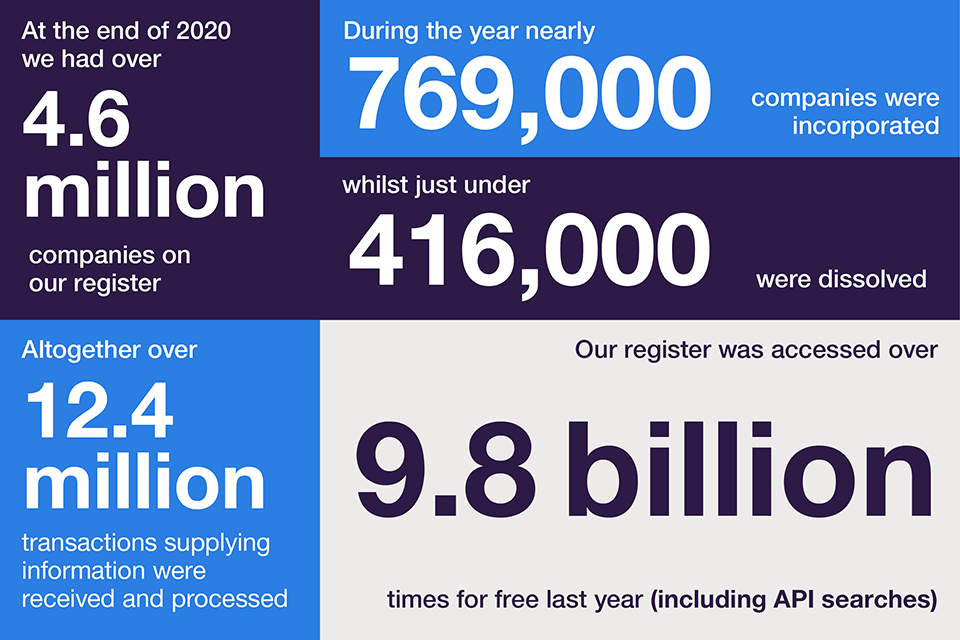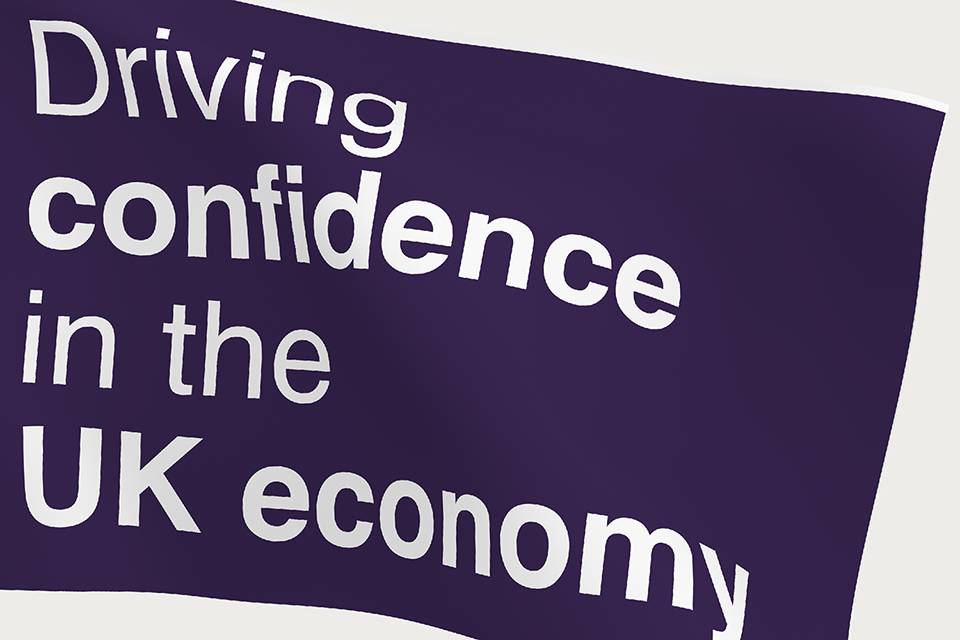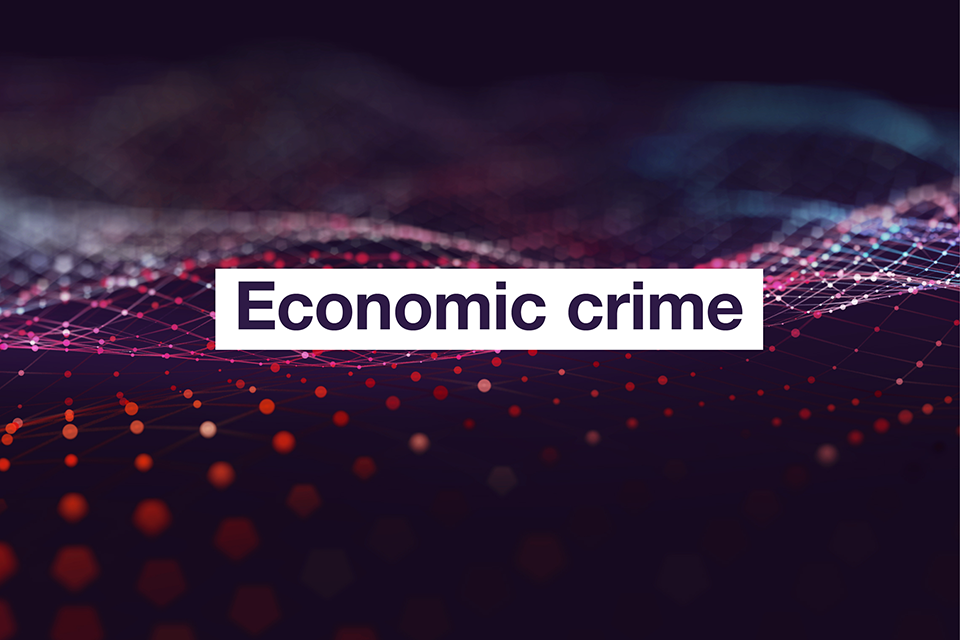Companies House corporate plan 2021 to 2022
Published 22 December 2021
Chair and Chief Executive’s foreword
The past year has been a time of intense change and challenge for Companies House, and we expect nothing less of the year to come.
Over the past year we, like others, have focused our attention on responding to the coronavirus (COVID-19) pandemic as it emerged and developed. We pivoted rapidly to deliver changes to our services for our customers so that they would not need to access their physical offices. We ensured that the vast majority of our staff were able to work remotely and the small proportion who needed to work in our offices could do so safely. We’ve maintained customer services and an up-to-date register throughout, continuing to play our role in the economy. We also contributed vital information, derived from analysis of our register, to inform key decisions by the government about the economy and supporting businesses.
This is an exciting time as we drive forward our transformation: Publication of the government response to the Corporate Transparency and Register Reform consultation in September confirmed the UK government’s ambition for reforms to the role of the registrar, the magnitude of which have not been seen for over 150 years. It is these reforms that will enable us to act where we have long wanted to but have been constrained by legislation – playing a more active role in tackling economic crime. We anticipate powers that will enable further improvements in the quality of register data and in how we can collaborate with others to fight economic crime, for example by challenging filings and by sharing information. At the same time that the government response was published, we published the Companies House strategy for 2020 to 2025, setting out our ambitious vision for a Companies House transformed through our people, systems and services, underpinned and enabled by legislative reform.
Our corporate plan focuses on our activities for 2021 to 2022, whilst also pointing to plans for following years. Legislative reform will be an enabler for many of the goals and objectives laid out in our strategy, but we can and will make substantial progress towards our transformation without legislation and make sure that transformation covers the breadth of Companies House activity. So, the coming year will see us delivering and progressing many aspects of our Strategy and overall transformation. Where possible, to derive maximum benefit from the changes we make, these changes will also lay foundations for the legislative reform that we eagerly await.
We are both immensely proud of what our team in Companies House has achieved over the last year and look forward to next year’s achievements. The scale of our vision and what we are setting out to achieve is vast and touches all aspects of who we are and what we do. We know that people across Companies House share in that vision and have the capability and enthusiasm to bring it to life as we continue together on our path to transformation.
Lesley Cowley OBE - Chair of Main Board and Remuneration Committee
Louise Smyth - Chief Executive and Registrar of Companies
Who we are
Around 1,000 people work for Companies House, based in Cardiff, London, Edinburgh and Belfast. The majority of people are based in our Cardiff office, with submissions such as incorporation and accounts as well as other statutory filings being processed by staff in the relevant location according to jurisdiction – Cardiff and London for England and Wales, Edinburgh for Scotland and Belfast for Northern Ireland.
In future years there will be substantial changes to the composition and capabilities of our teams as our remit changes. We’ll ensure throughout that our people have the skills and capabilities they need to deliver new functions and services and serve customers ever more effectively. We’ll achieve this through continuing to work to align our people to government professions, through our planned transition to a service model and through extensive programmes of development.

What we do
Companies House incorporates and dissolves companies. We register company information and make it available to the public.
These sentences sum up our duties but only tell part of the story. It is carrying out these duties and being empowered in the future to do it better, that underpins the vital role we play in supporting the UK economy, helping companies to thrive and fighting economic crime as outlined in the government’s ambition for Companies House.

At the end of 2020 we had over 4.6 million companies on our register. During the year nearly 769,000 companies were incorporated, whilst just under 416,000 were dissolved.
More detail and precise figures are available in official statistics from Companies House.
Altogether over 12.4 million transactions supplying information were received and processed. Those millions of transactions provide efficient and effective services to users and populate the data on our registers.
Our register data was accessed for free over 9.8 billion times last year, including accesses via our application programming interface (API). Our data is used by businesses, individuals and others in government. Research has estimated the value of the register at up to £3 billion per year.
Legislative reform and the expanded powers of the registrar will make possible further verification and validation of data to enhance its value to consumers, and enabling analysis to provide input to the fight against economic crime. Whilst we already play an important role in that fight, investment in advanced analysis and new data sharing gateways will enable us and our partners to derive even more value from our data and will underpin our participation in delivering the Economic Crime Plan.
Our external landscape
It is impossible to consider our external landscape without acknowledging the impact of the COVID-19 pandemic. Over the past year that led us to rapidly change plans in order to enable us to alleviate adverse effects on our customers and staff. The impact of the pandemic has caused us to accelerate some planned aspects of our transformation. Had we not for instance already made substantial progress in equipping our people for remote working we would not have been as well placed to rapidly transition to the majority working from home. It has brought to the fore a focus on the use we make of our estate and where we can free up space and contribute positively to the drive to move other organisations that still need physical space out of London and the South East.
Companies House data plays a key role in informing business decisions and will continue to have be vital in economic recovery as the UK emerges from the pandemic. Early on we added a new dimension to the usefulness of our data as we started to supply early economic indicators such as insolvency figures to the rest of government. These played a key role in informing decisions about measures to support business. We will continue to investigate other areas where our data can add value. We have a key role to play in not just providing raw data but also in honing our systems and services to support businesses at a time when they are under increased pressure, and helping policy makers and businesses to interpret this information correctly.

When the pandemic hit we were already moving to a service model to allow us to be more customer focused and responsive, putting in place service owners for our 3 key services. Service owners develop their individual service areas but also to work together to enhance our overall offering to customers. This proved invaluable as we responded to the pandemic to rapidly introduce new services and respond to pressures on companies, supporting both them and our staff. We will build on those services for the future rather than regress when the crisis is past, and will apply the lessons we have learned from our pandemic response to our longer term transformation.
At the end of last year we also supported our customers through a key event for the UK as the end of the transition period for the UK’s exit from the EU. We successfully implemented the changes to our systems, communicating with customers and stakeholders throughout. However, this is not to say that this experience or the changes we have made to respond to COVID-19 have been without issues and we will also make sure that we learn from those. We remain alert to any impacts and behavioural changes, for instance for those who might in future want to set up corporate entities to operate in the UK.
None of these factors change our plans for transformation as the fundamental demands of our external environment that we recognised in drawing up our strategy remain the same.
Our vision and goals
Our strategy sets out our purpose and vision:
To drive confidence in the UK economy and to be the most innovative, open and trusted registry in the world, with brilliant services delivered by brilliant people.
To do that, we’ll focus on achieving our 6 strategic goals. These are:
- Our registers and data inspire trust and confidence
- We maximise the value of our registers to the UK economy
- We combat economic crime through active use of analysis and intelligence
- Our brilliant services give a great user experience
- Our culture enables our brilliant people to flourish and drives high performance
- We deliver value through efficient use of resources

Our priority for 2021 to 2022 and for the next few years is therefore to deliver on our goals. They are not separate from legislative change. Rather the 2 are interdependent: without legislative change we will not be able to deliver on the entirety of our goals and vision, and without transforming our organisation, our people and our services we will not be able to deliver changes enabled by legislation effectively and efficiently.
The activities we will undertake to develop the capabilities to deliver on our goals are described below along with our supporting structure and finances.
What we plan to deliver
As we await future legislation, there is much that we can deliver to benefit our customers and position ourselves for reform.
In the earlier years, and especially in 2021 to 2022, we will focus on things that don’t demand legislative change: we will develop new customer journeys as we move away from legacy services and will seek to realise maximum value from that investment by developing components that will be re-used in the future. At the same time we will be collaborating to develop new legislation and to understand the new skills, capabilities and structures that will enable us to deliver it.
We do not underestimate the challenge this brings but neither do we underestimate the prize to be won. Together, the changes we make will enable us to achieve our goals, enhancing how we support our customers, making the UK a great place to do business and playing our part in fighting economic crime.
Corporate targets
Every year we set and publish targets that will measure our maintenance of vital standards and levels of service as well as our progress on transformational activities, choosing those that impact service to customers and help us to progress towards our strategic goals.
Complete and up to date data
97% of companies on the register will have an up to date confirmation statement.
Digital service availability
Digital services will be available for a minimum of 99.9% of the time.
New services
We’ll develop a new online journey for submission of confirmation statements.
We’ll develop a digital filing capability for insolvency transactions.
Customer satisfaction
We’ll be in the top quartile of public service organisations for customer satisfaction.
Diversity
Increase the number of staff recruited to Companies House from under-represented groups by 10%.
Delivering value
We’ll manage our expenditure within budgetary limits.
Spending with small and medium businesses
15% of what we spend will be spent directly with small and medium businesses.

These targets are highlighted at points throughout this document to show how they fit with our goals and planned activity.
What we plan to deliver is set out below against our goals. Proof of our success will come from measuring and evaluating the combined elements of our transformation. We have thought carefully about how things will look and feel in the future and the measures we will use. We will evaluate our progress and our success in delivering against our strategic goals by employing a range of measures across different objectives like use of register data, how engaged our people are, and our contribution to the economic crime ecosystem.
Our registers and data inspire trust and confidence
Good levels of compliance - and ours are in many cases world leading - are essential to ensuring our register holds timely data. In 2021 to 2022 we will continue the compliance activities that have led to those world leading compliance levels for submission of accounts and confirmation statements.
Reaching and maintaining those levels is no easy task and needs the consolidated efforts of teams across Companies House. We are alert to changes in the environment our customers operate in so that we can help them to remain compliant and thereby keep our data complete and up to date. We encourage compliance through a range of campaigns, remind those who fail to comply, and finally pursue those who wilfully evade compliance.
Corporate target 97% of companies on the register will have an up to date confirmation statement.
Confirmation statement compliance is central to maintaining our register as it requires companies to check that the basic information we make public about them is up to date The vast majority of confirmation statements are completed digitally, and another of our corporate targets is to build a new service that will make the user journey simpler and at the same time do more to ensure the quality of data provided.
We will continue to seek ways of further enhancing other compliance. However, at the same time we recognise, especially at the current time, the range of pressures on companies. This is why we worked with the Department for Business, Energy and Industrial Strategy (BEIS) to support legislation that provided companies with more time to file, and why we continue to seek ways to improve user journeys.

We will investigate ways in which we can enhance data quality, for instance identifying data matching opportunities that could lead to our challenging filings. Whilst our end goal is to ensure that we will be ready to effectively implement new legislation, we will also continue to carry out enforcement and to challenge as far as possible under current legislation.
We will measure our success through feedback and surveys including Reptrak and during the year we will establish an array of baseline measures that will enable us to measure progress towards our strategic goal. We are also seeking ways to compare register data against other data sources and putting in place a wider range of measures to assess its quality and how that’s improving.
In coming years, we will continue to expand data sharing with partners where we are able to. Building on this, we will be ready to take action when the legislation gives powers to query and verify information filed on the register. In the interim as part of transforming our services we will continue to improve them to ensure that users providing information can get it right first time, saving time for them and improving data quality.
We maximise the value of our registers to the UK economy
To deliver on our goal and facilitate access to and use of our data we will explore ways to provide improved search and reporting interfaces for users, allowing them and us to move away from outdated legacy services to online data services which will allow users to access and analyse data on demand. New facilities will make available digitally the information currently provided on physical certificates and copies. We will also continue to work with colleagues in government on where our data can be used to inform and underpin key decision making.
We will work on further expanding the range of data available through our services as well as the means of accessing it. Although data is searched through our services billions of times a year, some information is still searched through images of filings or needs manual intervention to process physical legacy media before information can be supplied digitally.

We will conclude initial work to ensure that information is available in an accessible format and will also investigate efficient ways of making information currently held on microfiche and roll-film digitally available. Doing this will contribute to removing reliance on physical media and locations and bring us closer to completing the digital record of companies on the register so we can provide fully digital services to get company information.
We combat economic crime through active use of analysis and intelligence
In 2021 to 2022 and the remaining time before new enabling legislation is introduced, we will continue to deploy the tactics available to us in the fight against economic crime. We have already increased collaboration with partners across government and elsewhere and continue to find new ways to play our role as fully as possible within the constraints of current legislation.
The UK government has set out in the Economic Crime Plan the crucial role that Companies House will need to play in the future. Reform of our powers and delivery of our transformation will enable us to play an enhanced role in the economic crime ecosystem.

Looking to the future, we will be working on implementing the fundamental changes to how we hold and process data that will enable us to proactively identify patterns of activity and build an intelligence hub that will contain information about suspicious activity and other data which we will make available to law enforcement partners.
Following enhancement of our service for reporting discrepancies under the Fifth Anti-Money Laundering Directive (5MLD) we will continue to undertake detailed analysis as well as analysing and assessing law enforcement outcomes from intelligence supplied.
In 2021 we will procure and implement an Identity Access Management (IDAM) system which will become an integral part of both existing and future digital services. Our IDAM framework of policies and technologies will be a core capability, initially used to ensure that users of Companies House digital services are given appropriate access through a single user account rather than the multiple accounts that some need to use currently. As we deliver on legislative change and make use of new powers in the future that core capability will also provide a means of checking and verifying information provided to us and its source.
Our brilliant services give a great user experience
The customer services we provide are largely well regarded and achieve good levels of satisfaction and take-up. They are vital to our customers for both providing and accessing information and during the COVID-19 pandemic have played a substantial role in helping our customers and staff to stay safe. This means that in turn it is vital that we ensure services are there when and where our customers need them.
Our digital services are highly available for our customers and for our own staff. We take pride in our excellent record of high availability and will continue to deliver to that standard and to maintain and develop the infrastructure that supports it.
Corporate target Digital services will be available for a minimum of 99.9% of the time.
However, some of our legacy customer services and internal systems are very much first generation and do not support advancements in technology such as Artificial Intelligence and machine learning. It is therefore imperative that they be replaced to provide the services our users and staff deserve and to enable future developments.
Over coming years, as part of our transformation and to deliver the new user journeys required to implement future legislation, we will continue to move our existing services to our new technology platform. This is not a matter of just migrating those services, but rather of transforming them to be services fit for the future. Those services will deliver on our goal of providing brilliant services, transforming user journeys for those filing, improving the quality and timeliness of the data we receive, and thus also improving services to searchers – and thereby delivering against multiple goals.
Corporate target We’ll develop a new online journey for submission of confirmation statements.
Our targets already recognise the importance of confirmation statement compliance in maintaining our register. This year we will focus on developing a new online journey for submission of confirmation statements. As the confirmation statement covers so much of the basic information about a company, it also provides the basis of redeveloping the journey for customers who need to supply or update many individual items of information. As the improved journey leads to improved data this will also benefit users of register data.
Corporate target We’ll develop a digital filing capability for insolvency transactions.
Although a high volume of transactions can be filed through digital channels, there are still some gaps in capability. Recognising the importance and urgency attached to insolvency transactions which were entirely paper based at the start of the pandemic, we quickly put in place a way for users to get them to us by digital means. This year, in line with previous plans, we will be working with insolvency practitioners and the Insolvency Service as primary users, plus other interested parties, to develop a fully digital service that meets their and our needs whilst maintaining vital security and accuracy.
We will also work on broader replacement of legacy services and plans to fill gaps in capability, developing new systems and services which will be of immediate use to our customers and staff and also stand us in good stead for implementing legislative reform. We are already engaged with users on our Confirmation Statement and Insolvency developments and will continue to engage, carrying out research and seeking feedback, as we embark on further developments.
For transactions and information requiring payment services we will be exploring options to enhance services that will enable us and our users to end reliance on other payment methods like cheques. We are conscious that we must provide options that make this practicable and accessible for our users. Indeed, working with our users to develop journeys and facilities that fulfil their needs is a common theme for all our service development and one where we have been particularly aware of the restrictions imposed by the current pandemic. Whilst we have adapted as swiftly as possible to new ways of working, we will continue to seek ways in which we can better conduct distanced user research.

Whilst we continue to improve and transform our digital services to become the services of choice for our users, we are aware that there are some who will choose not to use them. In conjunction with other behavioural research seeking to ensure our services are as good as they can be, we will therefore continue our efforts to understand and address barriers to digital take up. This has been, and will continue to be, the focus of a number of campaigns and is what will help us to make choices in our future developments.
We continue to seek ways to encourage and assist our customers to use our digital services, and will also consider how we can transition to requiring digital filing in appropriate areas, such as accounts filing. This is in line with recent consultations on registrar’s powers and on improving the quality and value of financial information on our register, and we await publication of the government responses to confirm our next steps.
Knowing how our customers see us and the services we provide is vital to us as we develop new services and seek to improve existing ones. We measure our overall customer satisfaction score by collecting feedback across a range of services and use that feedback to focus on the areas of greatest need for service improvement and to steer the development of new services. We’ll compare our overall score with scores achieved by other service organisations according to the UK customer satisfaction index as well as tracking our performance against absolute targets.
Corporate target We’ll be in the top quartile of public service organisations for customer satisfaction.
We also recognise that, however good and however intuitive our services are, there will sometimes be cause for users to seek help and to make queries and complaints. We will continue to pursue ways in which users can self-serve wherever possible but will also continue development of our customer facing teams to ensure that they can sensitively handle any issues they need to.
Our culture enables our brilliant people to flourish and drives high performance
Our people and our organisational structure and culture are fundamental to delivering on our strategic goals. We will continue to work closely with our team across Companies House to ensure that we all understand the cultural change needed and to put the power to deliver it in the hands of our people.
We’ve already transitioned to a new operating model based around our 3 key services:
- a filing service
- a get company information service
- an intelligence and enforcement service
We will build on this model during the coming year, making sure the entire model works effectively, with services complemented by enabling support areas. It is this that will ensure we can deliver on the anticipated demands of organisational transformation and legislative reform whilst also equipping us to flex to any other, as yet unanticipated requirements.

Central to our ability to do this will be our workforce strategy and the development of our staff: based on understanding of future requirements and current skills and capacity we will set out a high level workforce plan that sets out future workforce shape, size and skills. Based on this we will provide timely training and development and will recruit where needed, ensuring that our corporate brand attracts the people we need.
We will complete the alignment of our people to civil service professions and will continue to build our organisational model and carry out skills analyses and development throughout our transformation. This will ensure we are always able to have the right people with the right skills in the right place at the right time.
The power to influence, shape, and ultimately deliver the change we need is in the hands of our people. We have striven to ensure over the past year that their voice continues to be heard. We have seen our culture community, which is open to all go from strength to strength and continue to seek innovative and inclusive ways of involving people in all aspects of change.
Corporate target Increase the number of staff recruited to Companies House from under-represented groups by 10%.
Diversity and inclusion are very important to us in recruitment as well as in all other aspects of how we work. Widening the diversity of our workforce broadens our talent pool and enhances understanding of our customers. Diversity of thinking, views and experience will enhance our organisational capability and we want to be truly representative of the customers we serve. Two years ago, we achieved a target to increase applications from underrepresented groups. We have maintained and surpassed that level in the face of the challenges brought by the pandemic so this year we are moving to a new challenge to increase the proportion of appointments resulting from those applications.
The networks that we had in place pre-pandemic have proved invaluable in building inclusion and as one of a range of means for keeping in touch and maintaining engagement.
We have been able to continue to make Corporate Social Responsibility (CSR) contributions by, for instance, donating no longer used equipment to charitable causes. Our ability to undertake our usual volunteering initiatives has however been curtailed during the pandemic. We look forward being able to return to volunteering but will also be developing a new CSR strategy to go beyond current activity.
Corporate target 15% of what we spend will be spent directly with small and medium businesses.
In this sphere we also have a role to play in contributing to the success of small and medium enterprises (SMEs) by contributing to ensuring that the government is open and transparent in its procurement processes, giving smaller businesses every opportunity to bid for and win contracts. The UK’s 5.7 million SMEs make a massive contribution to the economy. They may be small, but their impact is huge, employing 16 million people and accounting for £1.9 trillion of turnover. They are hard at work, day in and day out, creating jobs, opportunities and greater choice for consumers. In line with the BEIS SME action plan, we are determined to lead by example and create an action plan to ensure that by 2022 at least £1.50 in every £10 we spend will be spent with smaller businesses.
We deliver value through efficient use of resources
Managing financial inputs is a key driver for delivering public value. Delivering the outcomes defined across the other corporate targets whilst keeping expenditure within delegated limits ensures public value is maintained.
Corporate target We will manage our expenditure within budgetary limits.
Our workforce strategy as mentioned above will play a major role in ensuring future efficient and effective use of our people resources, and there are many other areas in which we can continue to seek further efficiencies building on those delivered in past years. As an integral part of that journey, we will also be working to improve our efficiency measurement and reporting itself.
Improving the efficiency of our internal systems and processes goes hand in hand with our move to a new organisational structure. At the beginning of 2020 Companies House ceased to be a trading fund and instead became part of central government. Leading up to that and over the past year we have adapted processes and governance arrangements to fit with this new model and new obligations and will continue to perfect these in line with other organisational changes.
In this and future years we will be decommissioning legacy systems in favour of a modern infrastructure built on common reusable components as well as moving our digital services to the cloud, further contributing to breaking reliance on our building and physical estate.

We have a lot to gain from working smarter. We will continue to ensure that we can make best use of all the resources available to us, including especially our people as our most important and flexible resource. We continue to explore new ways of working, not confined to remote working and technology, and will continue this journey.
We have made a strategic decision to decrease the occupancy of our building in Cardiff. Aligned to this we will continue with a programme of estates works aligned to our ambition to reduce our own physical footprint and extend the use of the great facilities our building offers to others and establish a commercial model of income generation.
We have made substantial progress on reducing the amount of paper we receive, with take up of our digital filing services standing at above 90% at the end of 2020 and will seek to increase that figure as we further develop our services. Last year we turned our attention to the paper that we ourselves produce and 2021 will be the first year in which we no longer issue paper-based reminders to carry out statutory filings, with users relying instead on our established digital reminder service. We will now start to build on that by considering further ways in which we can progress on a journey to eliminate paper output.
We will also continue to work with others across government and beyond to improve services as well as generate efficiencies. As well as our ongoing work with partners in tackling economic crime, we will continue to work with colleagues in HMRC around the filing of accounts to government and with GDS and a range of other departments to optimise the journey to set up and sustain a business.
Companies House and the environment
The environment is a key focus for us and one that we consider in all aspects of our business including our internal operations, our supply chain and how we and our customers interact. In our strategy the environment is therefore a consideration that runs through all of our goals rather than being a goal in its own right, and the same applies to this plan: there are many elements of our plan which we expect to have positive environmental outcomes and we will evaluate these at an initiative level as well as measuring our overall organisational performance.

Companies House has a strong record on addressing its environmental commitments delivering substantial improvements in recent years. Previous successes mean we are well placed to work with and develop government commitments and BEIS priorities on tackling climate change. Our Greening Government Commitments from BEIS are expected in Spring 2021 when we will be in a better position to plan our Environmental approach for the year ahead.
We will continue to monitor and reduce our environmental impact in line with our strategy. Over the next 5 years, we aim to introduce processes that will significantly improve our own environmental performance, and services that will help customers to reduce the environmental impact of transacting with us. We will continue to monitor the environmental impact of our activities to encourage use of digital channels and to plan for more ways in which we can reduce our own impact and services to customers that will also reduce theirs.
Financial performance
This table shows our planned performance for 2021 to 2022 and a forecast for the following 2 years.
| 2021/22 | 2022/23 | 2023/24 | |
|---|---|---|---|
| Income | £69.9m | £73.3m | £72.6m |
| Programme non-ringfenced (RDEL) | £81.7m | £85.9m | £87.2m |
| Programme ring-fenced (RDEL) | £8.4m | £11.1m | £12.6m |
| Admin non-ringfenced (RDEL) | £0.0m | £0.0m | £0.0m |
| Total RDEL | (£20.2m) | (£23.7m) | (£27.2m) |
| Capital (CDEL) | (£13.0m) | £16.7m | £27.7m |
| LFP Scheme (RDEL) | (£10.9m) | (£10.7m) | (£9.8m) |
This year’s funding has been confirmed in the 2020 spending review, and a comprehensive spending review will be undertaken during 2021 to confirm funding for future years. The increasing level of investment in future years supports the achievement of our strategic goals, enabling us to play a key part in combatting economic crime, to deliver brilliant services to our customers and to transform Companies House.
Fees
Companies House operates largely on the basis of cost recovery, our fees provide the majority of our income and their levels are linked to the service provided. Our fee setting follows ‘Managing Public Money’ principles alongside wider precedents.
We regularly review our fees to ensure that levels remain appropriate. Where necessary, for example following a change of business process, we adjust our fees to ensure that they continue to reflect the nature of the work involved.
During the year we will therefore review our fees with a view to making any necessary adjustments for the following year. At the same time, we are undertaking a more fundamental review of our funding model to reflect the changing nature of the organisation and ensure that our model remains fit for purpose into the future.
External accreditations
Environmental standard ISO 14001:2015
Companies House continues to develop, implement and maintain an Environmental Management System (EMS) certified to the International Environmental Management Standard (ISO 14001:2015) and has proudly held this certification since 2002. This internationally recognised standard provides a framework so that Companies House can responsibly manage an effective Environmental Management System, removing or mitigating any detrimental impact our activities have on the environment.
We are assessed against the standard annually to ensure ongoing compliance. The intended outcomes of our EMS are clearly defined, and relevant processes and procedures have been put in place to ensure our objectives are met: to protect the environment and reduce pollution; ensure continual improvement by enhancing our environmental performance and fulfil all relevant environmental compliance obligations.
Health and safety OHSAS 45001:2021
Companies House has held certification to the ISO 45001 standard since February 2021. Its purpose is to provide a framework that underpins our Occupational Health and Safety Management System, ensuring that comprehensive processes and procedures are in place to reduce workplace risks and create improved and safer working conditions for our employees, customers and visitors. Our next surveillance audit will take place in November 2021.
Customer Service Excellence standard
The government wants organisations to provide excellent services with customers at the heart of its service provision. The Customer Service Excellence Standard was developed to help deliver this. It assesses organisations against the standards, recognises achievements and identifies areas for improvement. Companies House has been successful in achieving the standard with many areas of excellence highlighted. We will have our annual assessment in quarter 3.
Cyber and Information Security
We have, again, maintained certification to the international security standard ISO27001. This represents independent assessment of both the appropriateness and effectiveness of our Information Security Management System at a time when we are moving from on-premises systems to ones hosted in the cloud.
Financial payments
Companies House takes credit and debit card payments across a wide number of different channels. This creates a requirement for us to assert compliance with the Payment Card Industry (PCI) standard for all payment systems and processes, including not only the software, but our people, processes and physical locations. This attestation is validated by an external Qualified Security Assessor and ultimately accepted by our Acquiring Bank.
Official statistics
Companies House has been a producer of official statistics for a number of years. The Office for Statistics Regulation and the UK Statistics Authority have a published Code of Practice. The Code provides producers of official statistics with the detailed practices they must commit to when producing and releasing official statistics. Companies House official statistics are in line with these practices, ensuring that the statistics that we publish serve the public. When producers of official statistics comply with the Code, it gives users of statistics and citizens confidence that published government statistics are of public value, are high quality and are produced by people and organisations that are worthy of trust.
Investors in People
In September 2020 we achieved Investors in People Platinum status in and have been listed within the top 20 platinum organisations globally.
Platinum is the highest level of accreditation that can be achieved. It means that policies and practices around supporting our people are embedded in every corner of our business. In a platinum organisation everyone – from the CEO to a customer services apprentice – knows they have a part to play in doing well, and is always looking for ways to improve. To be assessed as platinum, an organisation needs to have at least 7 of the 9 indicators at a platinum level, plus the other two at gold. Only around the top 2% of the companies assessed are platinum.
